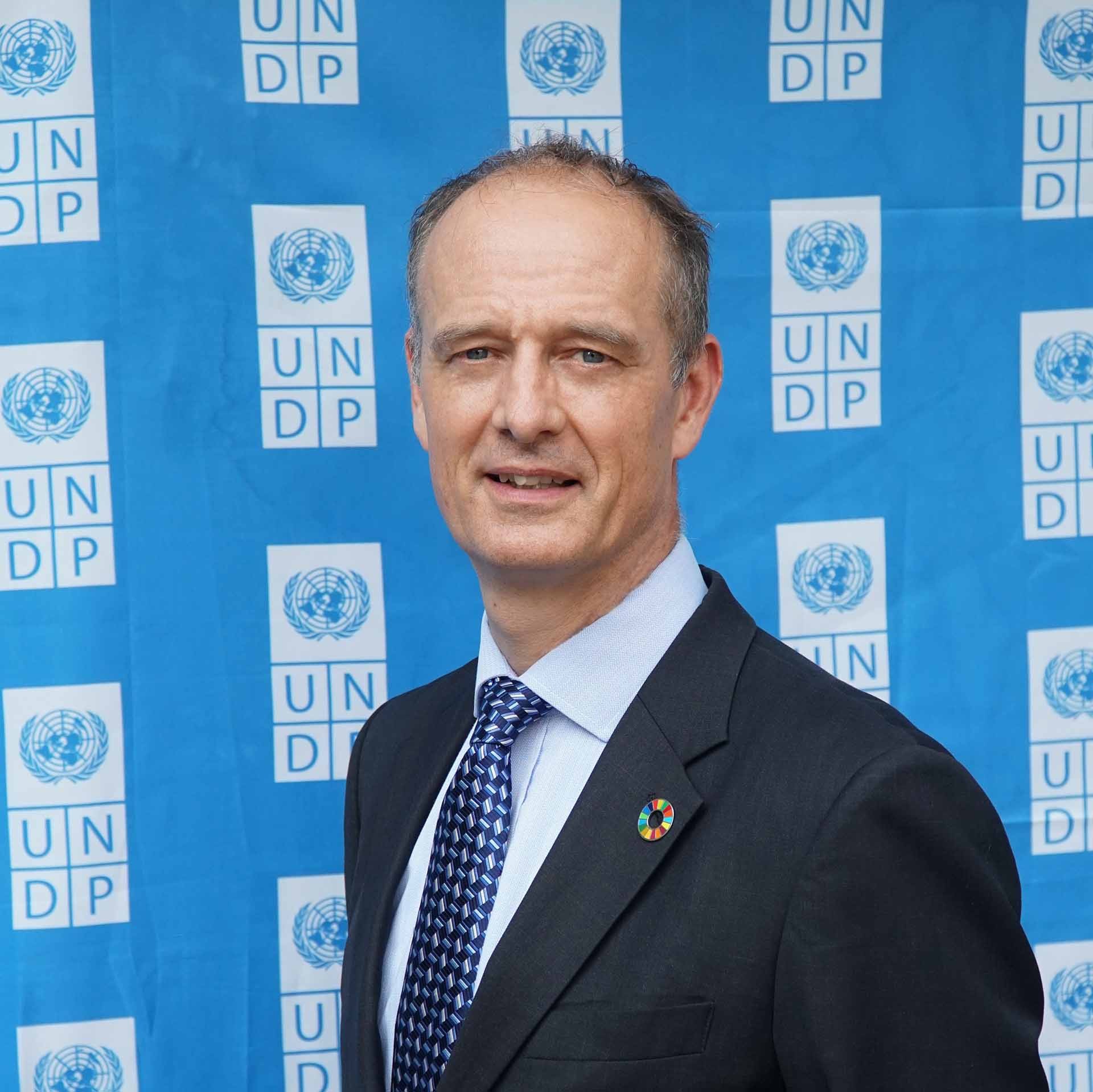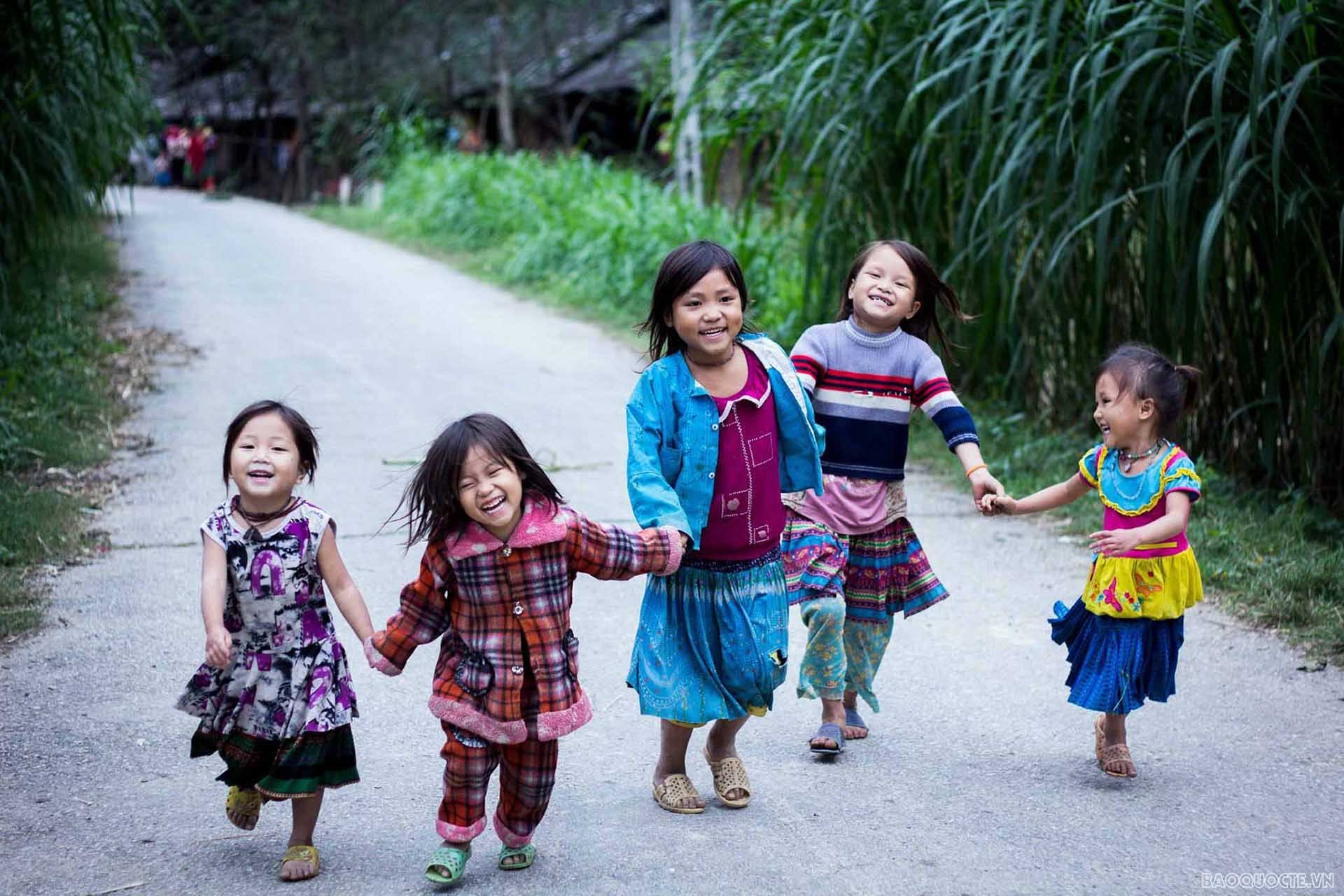
Towards a green, inclusive and prosperous Vietnam: UNDP Deputy Resident Representative
Latest
 |
| Mr. Patrick Haverman, UNDP Deputy Resident Representative in Vietnam. (Source: UNDP) |
What do you think about the socio-economic development of Vietnam over the past time?
Vietnam has experienced incredible economic growth since the 1990s. It rose from a low-income to a middle-income country thanks to the Government’s reform policies, their commitment to equitable growth and poverty reduction.
In the last two years during COVID-19, Vietnam put a lot of effort into ensuring the safety and security of its people. This time last year, the Government led the most rapid roll out of COVID vaccines to all the population.
The aggressive vaccination programmed was followed quickly by an economic recovery campaign. Vietnam was among the first countries in Southeast Asia to open its border and remove entry restrictions. This was seen as key in re-igniting economic activities. Economic conditions have improved dramatically; exports are growing and international tourism is returning.
However, many challenges remain. At the height of the pandemic in 2021, poverty increased significantly, especially among migrants, self-employed and low skill workers not eligible for benefits. The inequality gap widened between high-income groups and low-income groups. To respond to this, Vietnam introduced two packages to support those affected by lock-downs and social distancing. However, due to administrative requirements, the support did not reach those in need fast enough.
Although growth was high in the first three quarters of 2022, as tourism, transport and other services restarted, the global economic recession has had initial impacts in Vietnam. Sustaining growth is subject to the conflict in Ukraine, rising international interest rates, macroeconomic instability. During the second half of 2022, domestic risks in the banking sector also created a sense of uncertainty among the population. Climate change impact is increasingly visible, with weather extremes, rising sea levels, droughts and floods. Uncertain time, unsettled lives, as the UNDP Human Development Report 2022 named it.
The Government therefore plays an important role in ensuring that growth is sustainable beyond this year. Given the increasing climate threats and the commitments made to become Net Zero by 2050, Vietnam needs to plan and increase its resilience for future shocks. To meet the objective of achieving high-income status by 2045, Vietnam needs to set the stage adequately. These include access to long-term domestic finance for development, efficiency of public investment, building strong institutions and investment in education and research and development.
Vietnam also needs to build an innovation-based economy. In our experience, success is likely to emerge from experimentation at the local and sectoral levels, with sharing of lessons across localities, provinces, departments and ministries.
We look forward to working closely with government and development partners to build a green, inclusive and prosperous Vietnam.
Vietnam has been elected to the UN Human Rights Council for the 2023-2025 term. What do you expect from Vietnam when it assumes the position?
I would once again like to congratulate the Government of Vietnam on its election to the Human Rights Council for the period 2023-2025.
With the membership to the Human Rights Council comes a great responsibility but also an important opportunity to demonstrate concrete efforts in protecting and promoting economic, social, cultural, civil and political rights in line with international human rights standards.
Moving forward, Vietnam will undergo the 4th cycle of the Universal Periodic Review (UPR) during its term at the HRC - the UN mechanism that is considered as one of the Council’s greatest achievements. Vietnam is expected to indicate its strong leadership in compliance with international obligations and commitments by ensuring genuine engagement of diverse stakeholders, especially of non-state actors, and by increasing acceptance of recommendations and committing to a roadmap to implement the recommendations received.
During the 2023-2025 term as member of HRC, Vietnam also needs to realise its reporting obligations under various UN treaty bodies, including, for example, the International Covenant on Civil and Political Rights (ICCPR), the International Covenant on Economic Social and Cultural Rights (ICESCR), the Convention the Elimination of Discrimination against Women (CEDAW), the Convention on the Rights of Persons with Disabilities (CRPD) and the Convention against Torture (CAT). I expect that Vietnam will strengthen its reporting under these major mechanisms by tracking national efforts with data and indicators, as well as accelerate the implementation of recommendations issued by these treaty bodies.
The recent ratification of Vietnam to the Marrakesh Treaty was an important step to further protect the rights of Vietnamese persons with visual disabilities. I believe the next step is to translate these legal obligations into realities.
While giving effect to new international human rights commitments, Vietnam should consider ratifying the remaining core UN human rights treaties, including the International Convention for the Protection of All Persons from Enforced Disappearance, the International Convention on the Protection of the Rights of All Migrant Workers and Members of their Families and the Second Optional Protocol to the ICCPR, ect. Vietnam’s ratification of these important conventions would be a strong attestation to its human rights commitments.
In the Voluntary Pledges as a Member of the HRC, Vietnam has set priorities to protect the rights of vulnerable groups and ensure gender equality and human rights in solving global problems such as human rights in the context of climate change.
Now that Vietnam has officially taken the seat at the Council, the international community and the Vietnamese people will look to Vietnam’s active leading role in addressing these priorities, both at home and in the international arena.
We at UNDP would like to offer our support to Vietnam in fulfilling its obligation as a Council Member, to uphold the highest standards in the promotion and protection of universal human rights for all people in Viet Nam and to contribute to solving human rights challenges globally.
 |
| UNDP would like to offer support to Vietnam in fulfilling its obligation as a Council Member, to uphold the highest standards in the promotion and protection of universal human rights. (Photo: Nguyen Hong) |
You have experienced Tet in Vietnam, haven't you? What is your impression? What have you done during Tet 2023?
This is my second Tet in Vietnam. I am very impressed by how Vietnamese people prepare for Tet, especially with Cam Quat trees and Peach blossom.
I have been invited to Tet receptions of national partners and met them to celebrate what we have done together in the past year and to start the Year of the Cat with even closer cooperation for an inclusive and green rebound in Vietnam.
On the occasion of the New Year, what would you like to say to the Vietnamese people?
Just before Tet, UNDP, the Quang Binh Provincial Department of Planning and Investment, and World Share handed over 73 new storm- and flood-resilient houses to poor and near-poor families living in disaster-prone areas in the province.
One of my wishes is that in the New Year, all people, especially vulnerable coastal communities, have a house that can withstand heavy floods and storms.
I wish everyone a warm and joyous spring and a very happy Year of the Cat.
Thank you!












